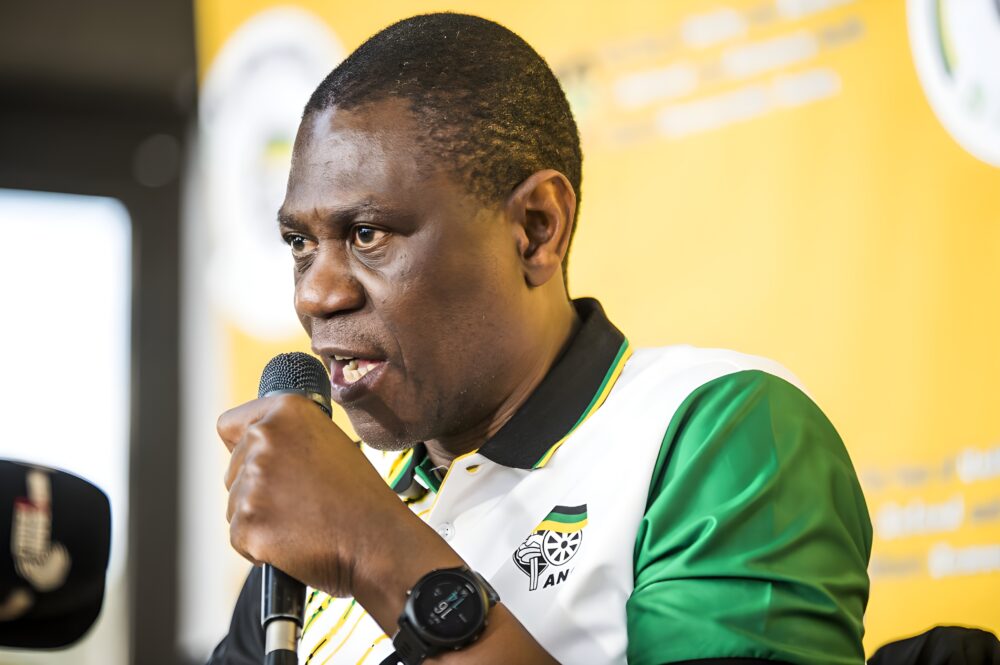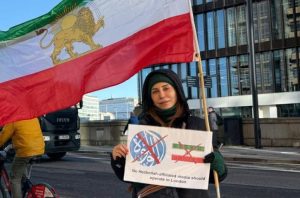Hijacked: National Dialogue faces a credibility crisis

The Democratic Alliance (DA) is claiming vindication for its decision to boycott the National Dialogue, after Deputy President Paul Mashatile issued a directive for ministers and their deputies to attend the Friday’s convention virtually.
But, in a letter dated 13 August, Mashatile said members of the executive should attend the convention virtually to ensure space for citizens to attend.
DA spokesperson Karabo Khakhau said Mashatile’s decision not to have ministers and political leaders physically attend aligned with her party’s assertion that the convention, which kicks off the National Dialogue, was a costly “talk shop” unlikely to deliver concrete solutions to South Africa’s economic and governance problems.
Mashatile wrote: “Unfortunately, due to the size of the civil society delegation expected to be at the convention, I would request that you join the dialogue virtually. The organising committee will send a link in this regard.”
In late June, the DA said it was withdrawing from the dialogue, with party leader John Steenhuisen dismissing the initiative as a costly distraction from urgent policy interventions. He estimated the convention’s budget at roughly R700 million and said South Africans needed action rather than symbolic gatherings.
“The fact that others are now withdrawing from the National Dialogue shows that it is an illegitimate talk shop,” he told a media briefing in Johannesburg earlier this week.
“South Africans do not need more dialogue; they need real delivery. The DA will relentlessly use our influence inside the GNU [government of national unity] and parliament to push for these reforms. It is time for urgent action. We must create economic growth and jobs.”
Steenhuisen has framed the National Dialogue as a diversion from more substantive interventions, calling for urgent reforms to revive the economy, which he described as being in “the intensive care unit”.
Khakhau said the decision to remove political parties from the list of attendees spared the DA the optics of participating in a process it has openly rejected.
Other political formations such as the Freedom Front Plus (FF+) have echoed the DA’s scepticism. FF+ leader Corné Mulder said the party would not take part in the convention, accusing President Cyril Ramaphosa’s ANC of hosting a process that is neither genuinely open nor solutions-driven. ActionSA also withdrew, citing unresolved concerns about governance, planning and budget transparency.
Civil society groups AfriForum and Solidarity joined the list of organisations distancing themselves from the convention, pointing to its high costs and a perceived shift away from a citizen-led approach.
Several legacy foundations — including the Steve Biko, Thabo Mbeki, Chief Albert Luthuli, Desmond and Leah Tutu, FW de Klerk, and Oliver and Adelaide Tambo Foundations — have also opted out of Friday’s convention, citing insufficient funds, inadequate preparation time and increasing government control over the programme as reasons for their withdrawal.
“We feel the organisation of the matter was not entirely honest as to where the funds will be directed. Core principles meant to underpin the National Dialogue have been violated in the rush to host a gathering on 15 August,” the organisations said.

The National Dialogue was first proposed by President Cyril Ramaphosa during his inauguration last year, after the ANC lost its parliamentary majority in the general elections, forcing it into a 10-party coalition that includes the DA.
The initiative aims to foster dialogue across society, culminating in a national compact aligned with the National Development Plan’s goal of eradicating poverty and reducing inequality by 2030.
Despite the criticism, the National Dialogue’s steering committee has defended the process. Nkosinathi Biko, the committee chairperson, rejected claims that the initiative is a money- and time-wasting exercise, emphasising that the programme would run from August 2025 to March 2026, with outcomes designed to feed into a broader national plan.
But critics remain unconvinced. Labour federation Cosatu described the projected R700 million-plus budget as “astonishing” and a “reckless error”, highlighting the economic hardships faced by South Africans, including rising living costs, service delivery cuts, and unemployment. Cosatu warned that the initiative risked alienating the public amid widespread disillusionment.
After the withdrawal of the legacy foundations, a new convention organising committee was established, comprising representatives from civil society, the National Economic Development and Labour Council (Nedlac), Unisa and the presidency.
The organisers confirmed that the first national convention would go ahead on 15 and 16 August at Unisa’s main campus, hosting 1 000 delegates from more than 30 sectors. Special emphasis will be placed on marginalised groups, such as youth, women and LGBTQI+ people. Of the invited sectors, 557 participants have confirmed attendance.
Convention spokesperson Zwoitwaho Nevhutalu said that costs have been mitigated through in-kind contributions from Unisa, which is providing venues, catering, audiovisual support and printing at no charge.
Transport and a digital platform for dialogue have also been donated. Nevhutalu explained that the main expenses would be drawn from Nedlac and the presidency budgets in compliance with the Public Finance Management Act.
The convention organisers plan to hold at least three dialogues in each of South Africa’s 4 300 wards, supplemented by sectoral discussions and media engagement. A mobile app will allow the public to contribute and track outcomes. “The outcomes framework of the public dialogues will focus on radical change, rapid response and rebuilding the nation,” Nevhutalu said.
Nevhutalu added that the event is not for politicians but for citizens and cannot be filled by ministers and their deputies.
“The convention is not political but for citizens so the leaders can contribute online because we want to hear from the citizens not the politicians. The majority of the people that we have accredited by far are ordinary citizens mostly from civil society and so on,” he said.
For the DA, such efforts remain insufficient. Steenhuisen argued that only dismantling contentious legislation such as the Broad-based Black Economic Empowerment Act (broad-based BEE), the Employment Equity Act and the Expropriation Act, alongside stronger anti-corruption measures, would stimulate meaningful economic growth.
“These laws were intended to advance transformation, but they have increasingly entrenched elite enrichment, deterred investment, and blocked small businesses from accessing opportunities,” he said.
The ANC, however, remains committed to its transformative agenda. Secretary general Fikile Mbalula said the party “would not be coerced” into reversing its policies, echoing Ramaphosa’s earlier statement that broad-based BEE aligns with the Constitution’s equality clause and remains vital to redressing historical injustices.
ActionSA has also questioned the legitimacy of the dialogue, warning that public dissatisfaction and the withdrawal of respected foundations risk turning the initiative into a government-directed showcase. Party spokesperson Athol Trollip said the process was “crumbling” and losing credibility.
Build One South Africa leader Mmusi Maimane raised concerns about the opacity of the convention and its budget, highlighting a risk that the process could be co-opted by political interests rather than citizens. He called on the government to ensure that the National Dialogue remains genuinely citizen-led and inclusive.
“Without transparent criteria, the process risks favouring certain political or ideological factions over others,” he said.




